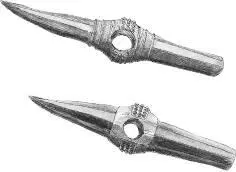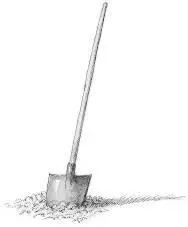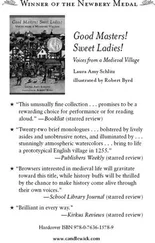Laura Schlitz - The Hero Schliemann
Здесь есть возможность читать онлайн «Laura Schlitz - The Hero Schliemann» весь текст электронной книги совершенно бесплатно (целиком полную версию без сокращений). В некоторых случаях можно слушать аудио, скачать через торрент в формате fb2 и присутствует краткое содержание. Год выпуска: 2006, ISBN: 2006, Издательство: Candlewick Press, Жанр: Старинная литература, на английском языке. Описание произведения, (предисловие) а так же отзывы посетителей доступны на портале библиотеки ЛибКат.
- Название:The Hero Schliemann
- Автор:
- Издательство:Candlewick Press
- Жанр:
- Год:2006
- ISBN:978-0-7636-6567-8
- Рейтинг книги:5 / 5. Голосов: 1
-
Избранное:Добавить в избранное
- Отзывы:
-
Ваша оценка:
- 100
- 1
- 2
- 3
- 4
- 5
The Hero Schliemann: краткое содержание, описание и аннотация
Предлагаем к чтению аннотацию, описание, краткое содержание или предисловие (зависит от того, что написал сам автор книги «The Hero Schliemann»). Если вы не нашли необходимую информацию о книге — напишите в комментариях, мы постараемся отыскать её.
The Hero Schliemann — читать онлайн бесплатно полную книгу (весь текст) целиком
Ниже представлен текст книги, разбитый по страницам. Система сохранения места последней прочитанной страницы, позволяет с удобством читать онлайн бесплатно книгу «The Hero Schliemann», без необходимости каждый раз заново искать на чём Вы остановились. Поставьте закладку, и сможете в любой момент перейти на страницу, на которой закончили чтение.
Интервал:
Закладка:

Heinrich’s last visit to Hissarlik uncovered more than treasure. At long last, he discovered the part of Hissarlik that matched the Bronze Age palace at Tiryns and the Bronze Age pottery he had unearthed at Mycenae. Historians are still wondering whether Schliemann fully understood what this latest find meant. What it meant, of course, is that the part of Hissarlik that he had maintained was Homeric Troy (Troy 2) did not date from the Bronze Age and was therefore not the Troy of Homer’s Iliad . The books and articles that he had published were all wrong. Moreover, if this newly discovered layer of the mound (later called Troy 6) was Homer’s Troy, he had thrown great heaps of it away. During his earlier attacks on Hissarlik, he had dug straight through the layer that he was trying to find. In his frenzy, he had destroyed buildings and artifacts that dated from the time of the Trojan War.
Wilhelm Dörpfeld, who excavated Troy 6 after Heinrich’s death, had his own story about Heinrich’s understanding of this latest find. He maintained that he broke the news to Heinrich and explained to the older man what the new findings signified: that Heinrich’s earlier theories were wrong. “I discussed the matter with Schliemann, who listened carefully without saying much. He then retired into his own tent and remained incommunicado for four days. When he finally came out, he quietly said to me: ‘I think you are right.’”
It was perhaps the most extraordinary moment of an extraordinary life.
In the autumn of 1890, Heinrich’s earaches became agonizing. He lost nearly all of his sense of hearing. When doctors examined him, they found bony growths inside his ears. Rudolf Virchow advised Heinrich to have the growths cut out in a hospital in Germany. The operation was painful but successful. Afterward, Heinrich lay in bed reading the Arabian Nights (in Arabic, of course) and planning his next season’s excavations.
The weeks that followed were lonely. Heinrich wrote a love letter to Sophia, praising her virtues. “At all times you were to me a loving wife, a good comrade . . . a dear companion on the road and a mother second to none.” He was homesick. Against his doctor’s orders, he made up his mind to leave the hospital and travel back to Athens, hoping to celebrate Christmas with his wife and children.
As he journeyed south, the pain in his ears returned and quickly grew worse. On Christmas Day 1890, he collapsed in Naples. Before a crew of doctors could agree how to treat his illness, he died.
The funeral was brilliant: Heinrich would have loved it. He was given a state burial, with a carriage drawn by eight black horses. Sophia recited Homer. Copies of The Iliad and The Odyssey were placed inside the coffin. Several hundred obituaries praised Schliemann’s patience and industry, his unflagging energy, his uncanny hunches. William Gladstone, four-time prime minister of England, wrote that “Either his generosity without his energy, or his energy without his generosity might well have gained celebrity; in their union they were no less than wonderful.” The inscription above the tomb read, To the Hero Schliemann .
Wilhelm Dörpfeld said, more simply, “Rest in peace. You have done enough.”
What had he done? He had labored to prove that Homer’s poetic world was true. He had done his energetic best to find Troy. Though most scholars now agree that Homeric Troy (Troy 6 or Troy 7) was located at Hissarlik, others await further proof. Today’s archaeologists mourn the carelessness of Heinrich’s excavations and the dishonesty that made him hedge about his finds. Heinrich Schliemann was a man who did things on a large scale, and his mistakes were not small ones.
Nevertheless, he took the world by storm. As ruthless as Achilles, as cunning as Odysseus, he rebelled against a commonplace fate. His hunger for a heroic life, his craving to be somebody, were not in vain. He did become rich; he did become famous; he did find lost cities and buried treasure. He spoke twenty-two languages. He wrote twelve books. Though he could not prove every detail of Homer’s story, he changed the way archaeologists look at stories: he forced them to see that stories could unlock the door to great discoveries.
His excavations at Hissarlik, Mycenae, and Tiryns brought the Bronze Age to life. He once bragged: “Wherever I put my spade I always discovered new worlds for archaeology.” It was true.
Many of his ideas were prophetic. Some of his most outlandish hunches — that the ancient people of Tiryns and Mycenae spoke Greek, for example — were later proved true by scholars who had the tools and training he lacked.
All his life, Heinrich was a lucky man, and he knew it. “I have had more luck than foresight in my life,” he admitted. It could also be said that he made his own luck. He spared no effort and he never gave up. In the second half of his life, he had the good fortune to win the loyalty of three exceptional people: Sophia Schliemann loved and comforted him. Rudolf Virchow and Wilhelm Dörpfeld were his teachers, his counselors, and his friends.
Heinrich Schliemann wanted his life to be like a story — and it was. His rampant imagination changed archaeology forever. Some of the tales he told — like the tale of Sophia wrapping “Priam’s treasure” in her red shawl — are everlasting, false though they may be. Heinrich’s stories are chronic and irresistible. They are part of the Schliemann legacy. Storyteller, archaeologist, and crook — Heinrich Schliemann left his mark upon the world.


Though I have consulted all the books in the bibliography, the following sources were especially helpful:
Deuel, Leo. Memoirs of Heinrich Schliemann: A Documentary Portrait Drawn from His Autobiographical Writings, Letters, and Excavation Reports . Heinrich Schliemann from his own point of view. Schliemann’s personality — his excitement, his conceit, his romanticism — manifests itself in every line. The editor, Leo Deuel, provides valuable background information.
Ludwig, Emil. Schliemann: The Story of a Gold-Seeker . Emil Ludwig was the first biographer to grapple with the great mound of writing that Schliemann left behind (two trunks full of materials written in ten different languages). When Ludwig was young, he met the aging Schliemann. After Schliemann’s death, he interviewed Sophia Schliemann about her life with her husband.
Traill, David A. Schliemann of Troy: Treasure and Deceit . David Traill is the most skeptical of Schliemann’s biographers. He has spent two decades studying Schliemann’s life, working tirelessly to try to sort through Schliemann’s half-truths and downright lies. Traill is a meticulous researcher and Heinrich Schliemann’s sternest judge.
Moorehead, Caroline. Lost and Found: The 9,000 Treasures of Troy: Heinrich Schliemann and the Gold That Got Away . Caroline Moorehead’s biography is also a story of the “Trojan Gold” and its disappearance during the Second World War. Though Moorehead is familiar with Traill’s research, and rightly skeptical of Schliemann’s stories, her view of the man himself is more tolerant than Traill’s.
Wood, Michael. In Search of the Trojan War . Wood’s book (and the accompanying videotapes) was enormously helpful in explaining the history and archaeology of Schliemann’s Homeric Quest. Wood also has a knack for explaining archaeology to the layperson.
Читать дальшеИнтервал:
Закладка:
Похожие книги на «The Hero Schliemann»
Представляем Вашему вниманию похожие книги на «The Hero Schliemann» списком для выбора. Мы отобрали схожую по названию и смыслу литературу в надежде предоставить читателям больше вариантов отыскать новые, интересные, ещё непрочитанные произведения.
Обсуждение, отзывы о книге «The Hero Schliemann» и просто собственные мнения читателей. Оставьте ваши комментарии, напишите, что Вы думаете о произведении, его смысле или главных героях. Укажите что конкретно понравилось, а что нет, и почему Вы так считаете.










